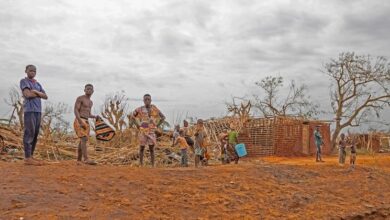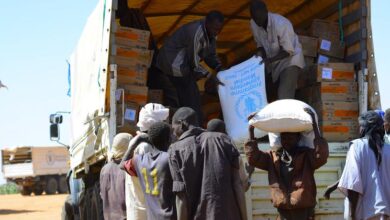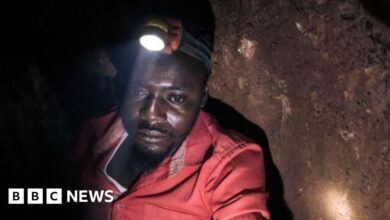Rebel rule in Idlib hints at what the rest of Syria can expect
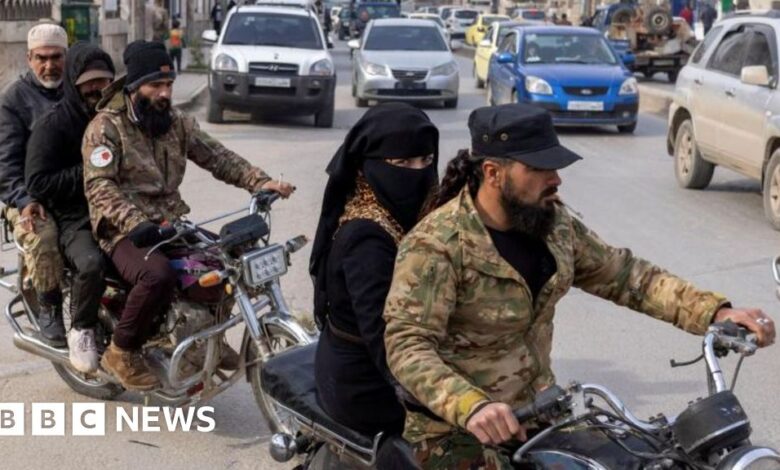
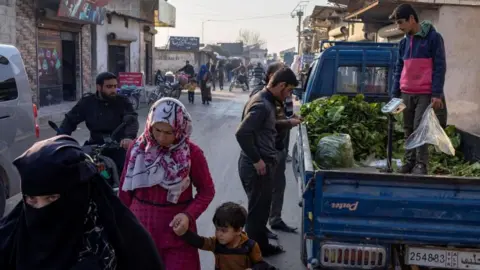 Reuters
ReutersThe road to Idlib, a remote corner of northwest Syria, still bears traces of the old front line: trenches, abandoned military positions, rockets and ammunition.
Until just over a week ago, this was the only area in the country controlled by the opposition.
From Idlib, rebels led by the Islamist group Hayat Tahrir al-Sham or HTS launched a stunning offensive to oust Bashar al-Assad and end his family’s five-decade dictatorship. he was in Syria.
As a result, they have become the country’s de facto authorities and appear to be trying to extend their rule to the rest of Syria.
In downtown Idlib, opposition flags, with blue stripes and three red stars, flew in public squares and were waved by men and women, young and old, after Assad was overthrown. pour. Graffiti on the wall glorifies the resistance against the regime.
While destroyed buildings and rubble are reminders of the not-so-distant war, renovated homes, newly opened shops and well-maintained roads are evidence of some has really improved. However, there are still complaints about what is seen as heavy-handed rule by the government.
When we visited earlier this week, the streets were relatively clean, traffic lights and lampposts worked well and police were present in the busiest areas. Simple things that are not found in other parts of Syria and are a source of pride here.
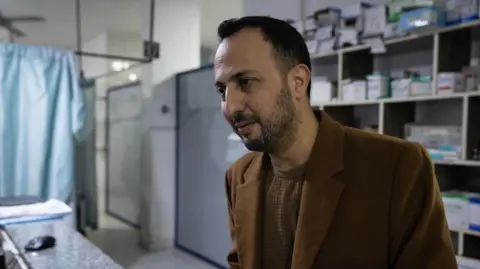 Lee Durant/BBC
Lee Durant/BBCHTS has its roots in al-Qaeda but in recent years has actively tried to rebrand itself as a nationalist force, distancing itself from its jihadist past and intent on removing Assad.
As militants marched on Damascus earlier this month, the country’s leaders spoke of building a Syria for all Syrians. However, the organization is still described as a terrorist organization by the US, UK, United Nations and other countries, including Türkiye, which supports some Syrian rebels.
The group took control of much of the region, home to 4.5 million people, in 2017, bringing stability after years of civil war.
The government, known as the Rescue Government, operates water and electricity distribution, trash collection and road paving.
Taxes collected from businesses, farmers and crossings with Türkiye fund public services – as well as its military operations.
“Under Assad, they often say that Idlib is a forgotten city,” said Dr. Hamza Almoraweh, a cardiologist.
He moved from Aleppo with his wife in 2015 as fighting there intensified, but had no intention of returning, even when the city fell under rebel control.
“We have seen a lot of development here. Idlib has a lot of things that it didn’t have under the Assad regime.”
As it moderates its tone, seeking to gain international recognition amid local opposition, HTS has rolled back some of the strict social norms it imposed when it came to power, including including dress codes for women and a ban on music in schools.
And some people cite recent protests, including against government-imposed taxes, as evidence that a certain level of criticism is accepted, as opposed to official repression. Assad regime.
“It is not a full democracy, but there is freedom,” said Fuad Sayedissa, an activist.
“There were some problems at the beginning but over the years they have acted for the better and are trying to change.”
Originally from Idlib, Sayedissa now lives in Türkiye, where he runs the NGO Violet. Like thousands of Syrians, Assad’s fall means he can visit his city again – in his case for the first time in a decade.
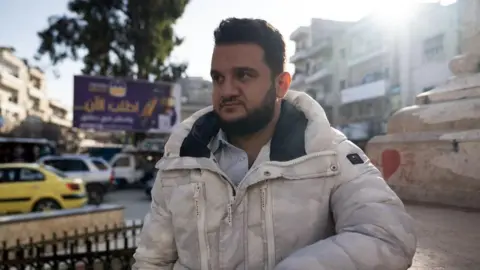 Lee Durant/BBC
Lee Durant/BBCBut protests have also been organized against what some see as authoritarian rule. To consolidate power, experts say, the group targets extremists, absorbing opponents and imprisoning opponents.
“How the government will act in the whole of Syria is another story,” Sayedissa said. Syria is a diverse country and after decades of oppression and violence perpetrated by the regime and its allies, many people are yearning for justice. “People are still celebrating but they are also worried about the future.”
We tried to interview a local official but learned they had all gone to Damascus to help the new government.
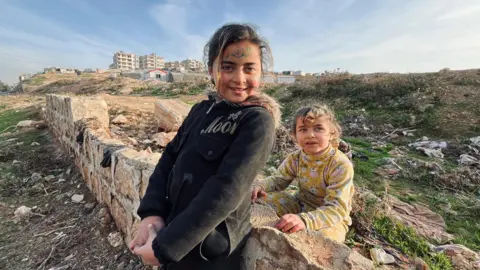 Lee Durant/BBC
Lee Durant/BBCAn hour’s drive from Idlib, in the small Christian village of Quniyah, church bells rang for the first time in a decade on December 8 to commemorate the overthrow of Assad.
This community near the Turkish border was bombed during the civil war that began in 2011 when Assad crushed peaceful protests against him and many of its residents fled.
Only 250 people left.
“Syria has been better since the fall of Assad,” said Master Fadi Azar.
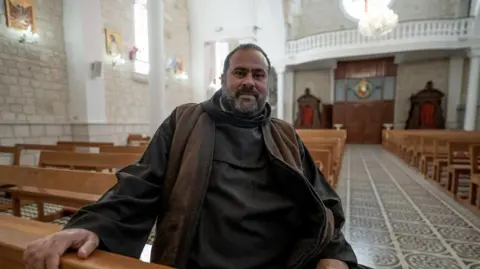 Lee Durant/BBC
Lee Durant/BBCHowever, the rise of Islamists has raised concerns that minorities, including Assad’s Alawites, could be in danger, despite messages from HTS reassuring religious groups and ethnicity that they will be protected.
“Over the past two years, they [HTS] started to change… Before, it was very difficult,” said Teacher Azar.
Property was confiscated and religious ceremonies were restricted.
“They gave [our community] given more freedom, they called on other Christian refugees to return to reclaim their lands and homes.”
But is that change real? Can they be trusted? “What can we do? We have no other choice,” he said. “We trust them.”
I asked Sayedissa, the activist, why even protesters were reluctant to criticize the group.
“They are heroes now… [But] we have red line. We will not allow dictators anymore, Jolani or anyone else,” he said, referring to Ahmed al-Shara, the HTS leader who abandoned the guerrilla title Abu Mohammad al-Jolani after taking office. take power.
“If they act like dictators, people are ready to say no, because now they have their freedom.”


